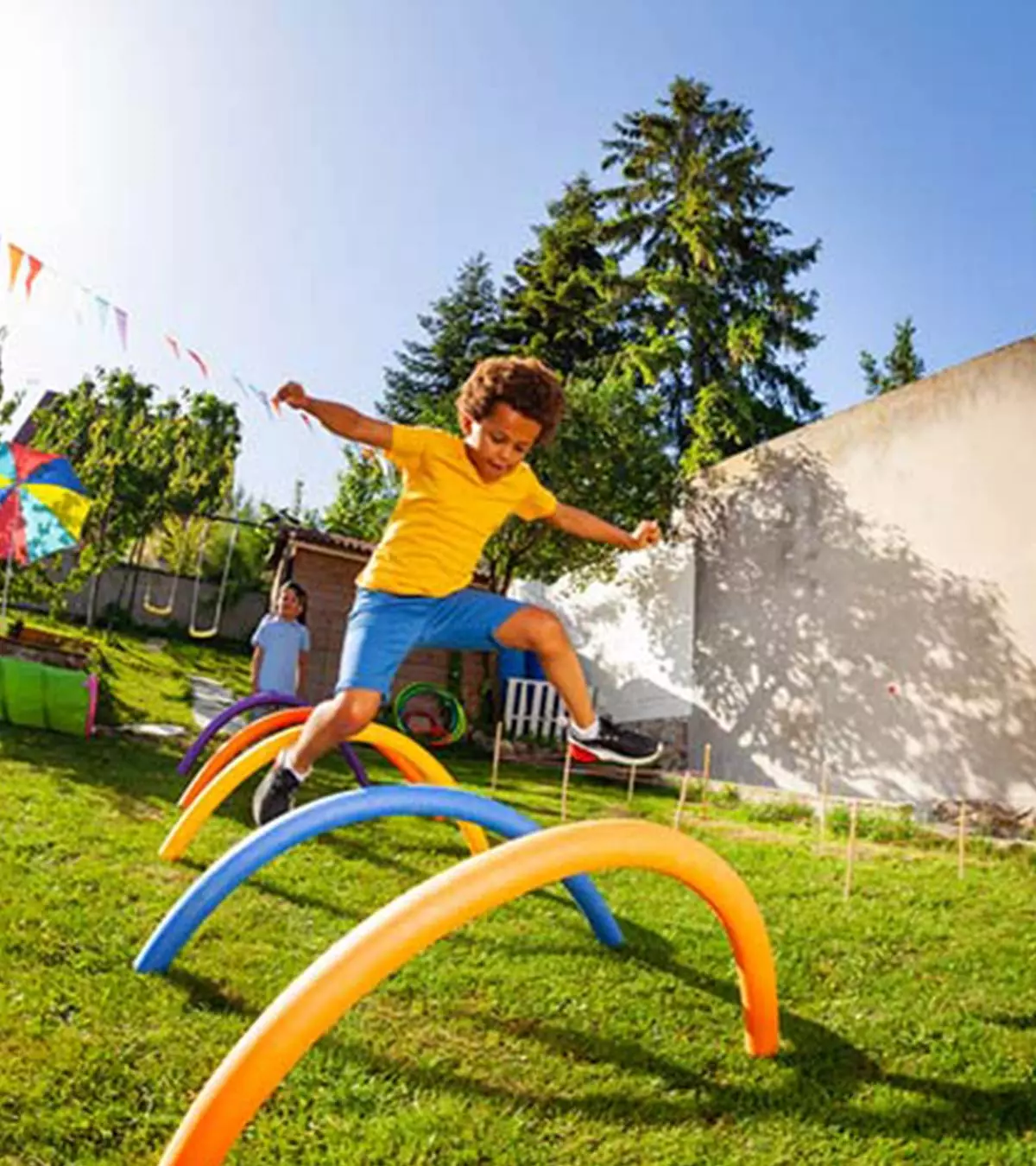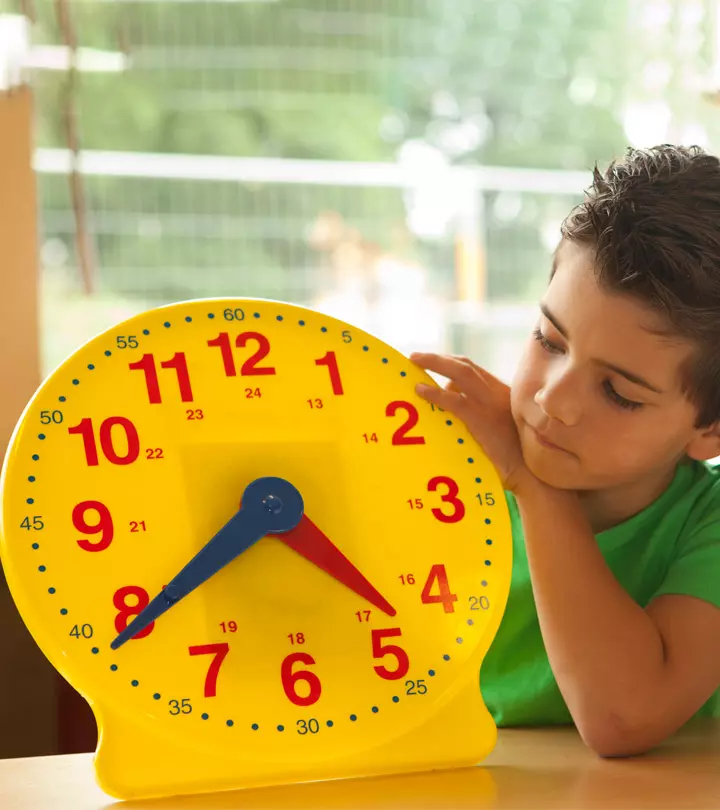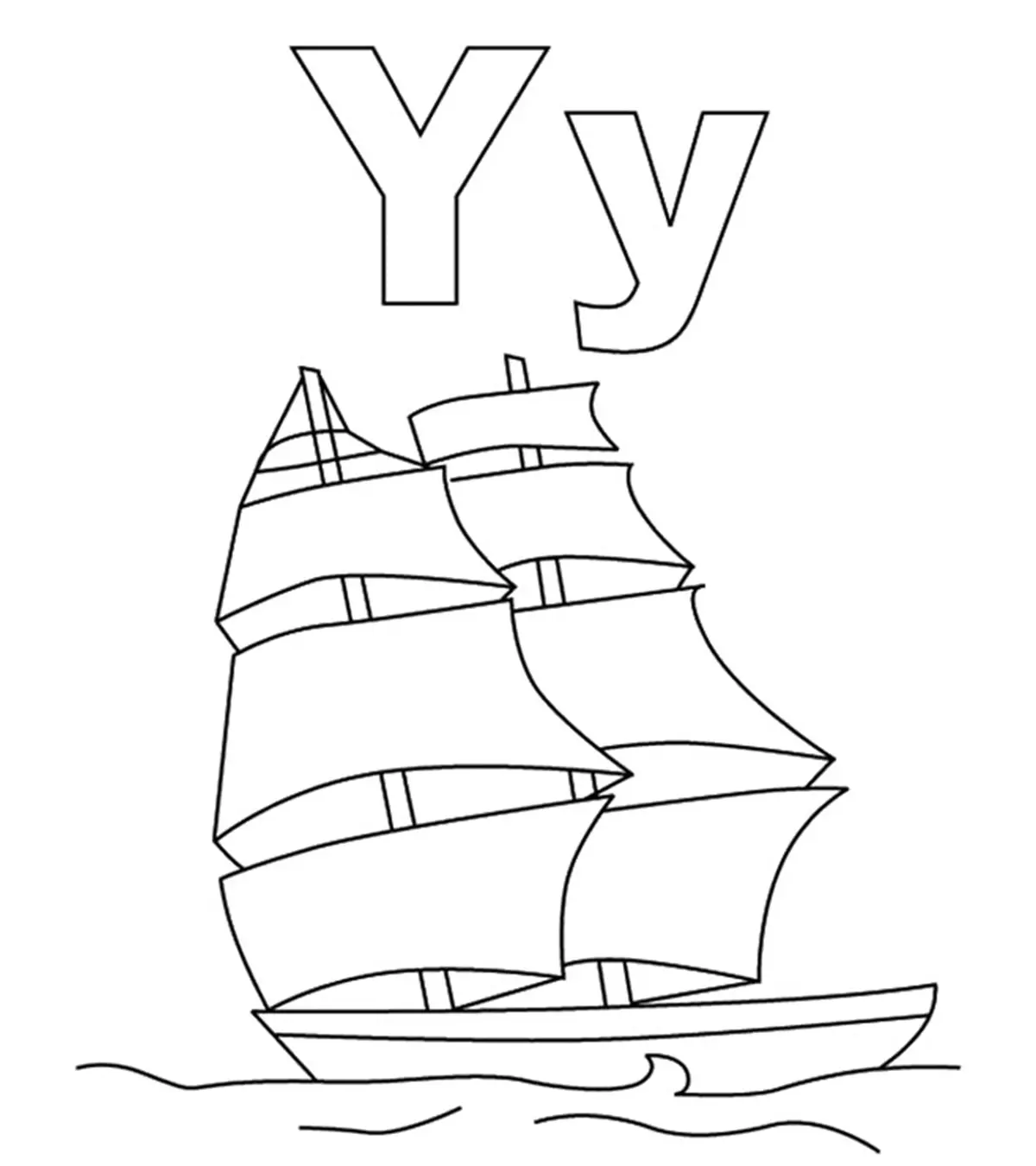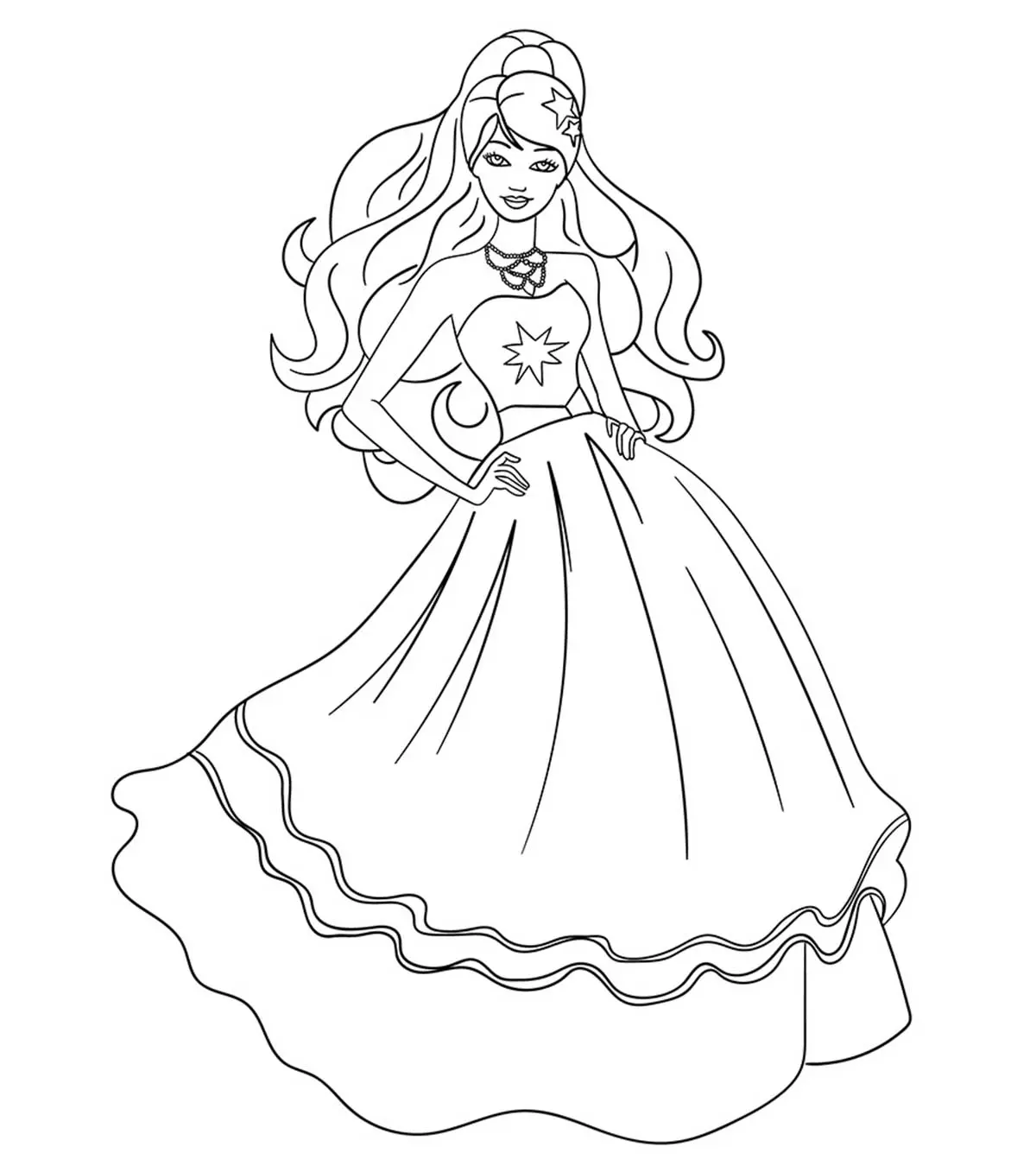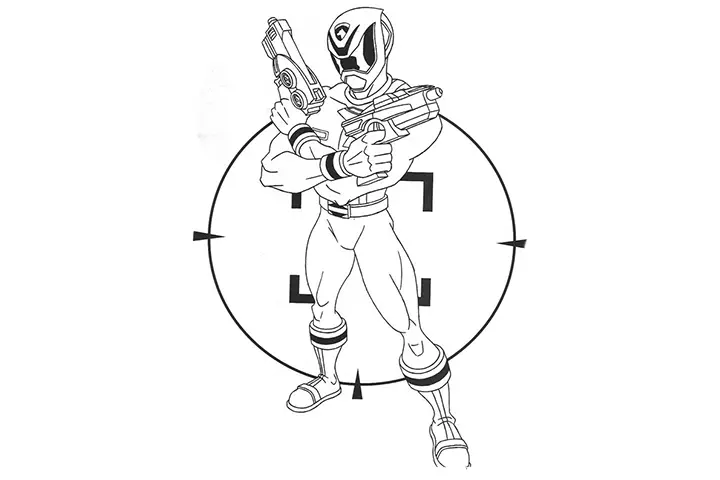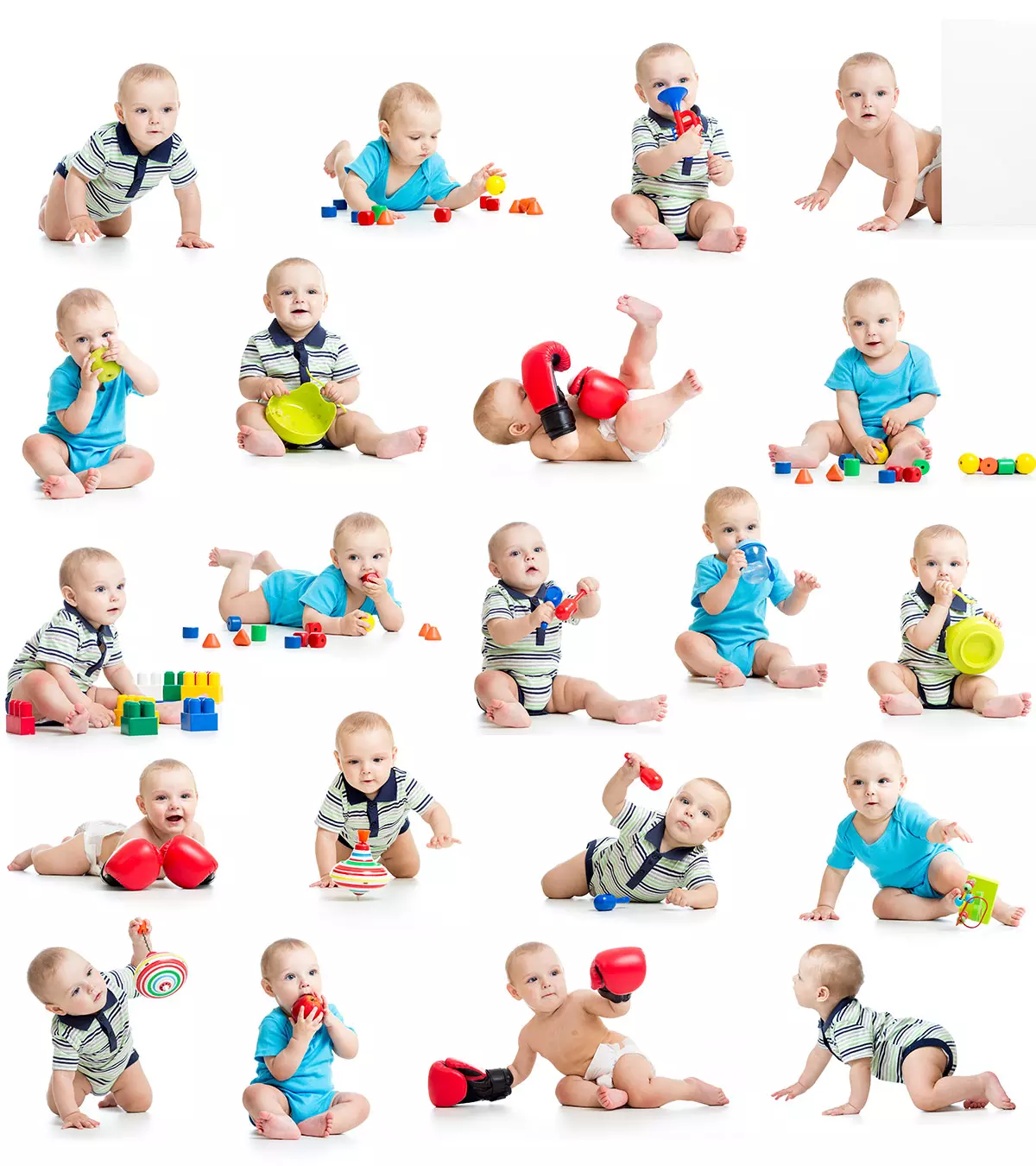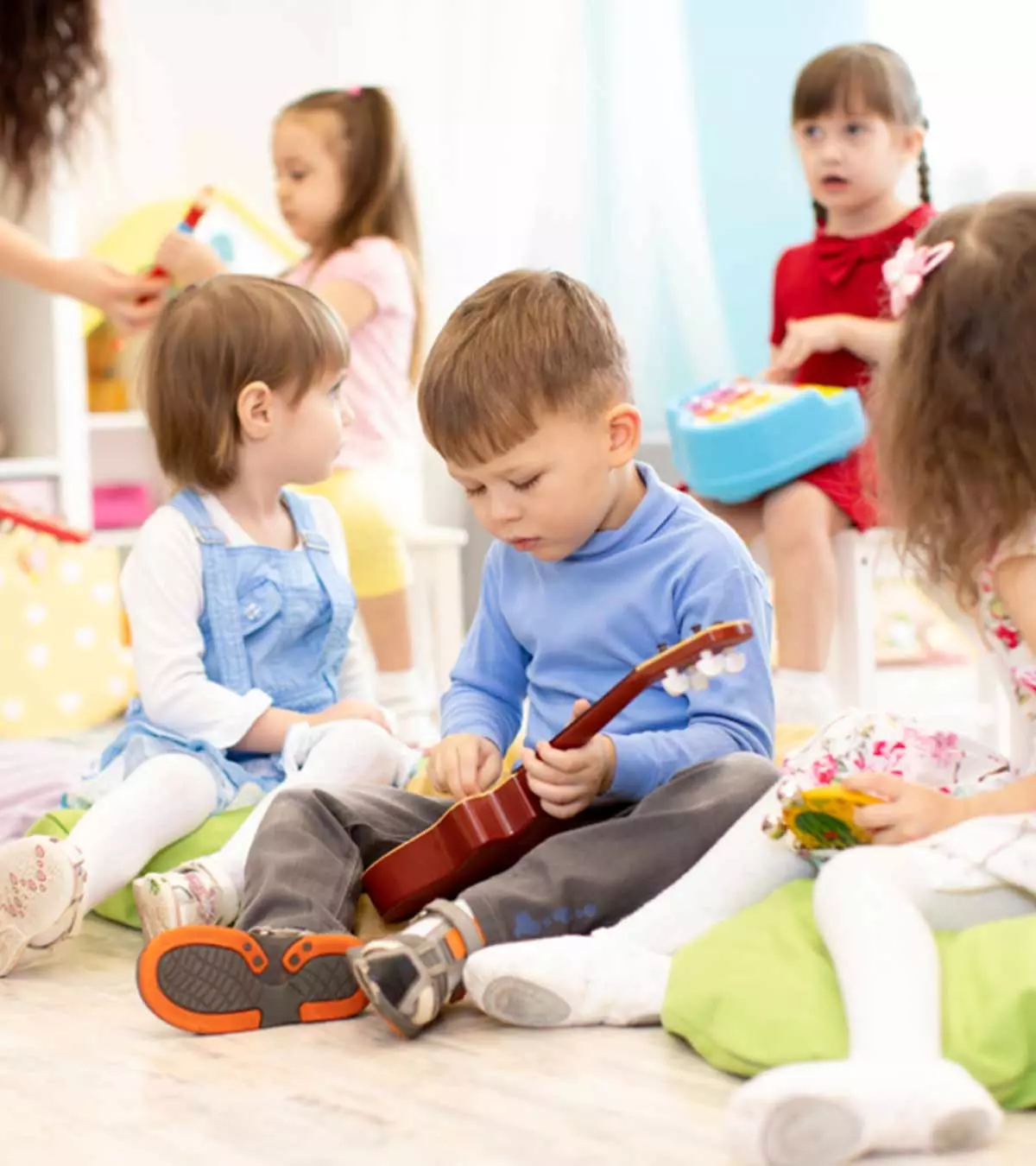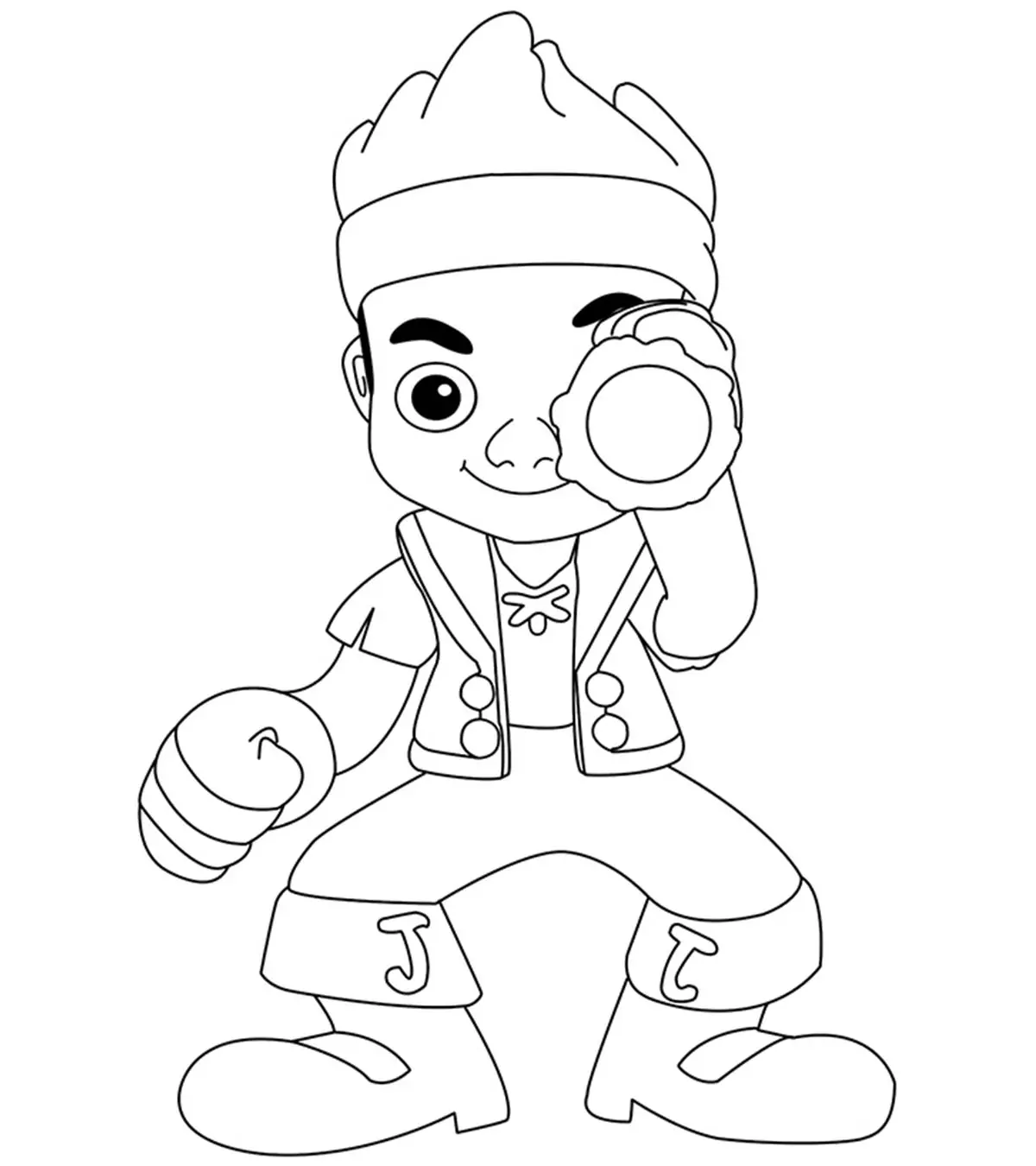
Image: ShutterStock
Activities for a 16-month-old baby involve learning and help them learn different skills, such as holding a crayon or scribbling. They also help improve children’s motor and cognitive skills. Introducing them to activities is guaranteed to fascinate them and capture their attention. Around this age, toddlers become more active in crawling and love to discover new things. In this post, we list some entertaining learning activities for 16-month-olds to keep their minds occupied. Sit with them and help them do the activities to encourage learning.

Key Pointers
- Engage toddlers in learning games and activities to fuel their curiosity and interest.
- Develop cognitive and motor skills with activities like Catch the floating balls, Walk the maze, Pass the ball, and Bubble catching.
- Use household items to make learning fun with activities like Sorting the clothes, Cereal container, and Stack the cups.
- Introduce music, drawing, and numbers to babies with activities like Music time, Drawing time, and One, two, three, respectively.
- Make learning enjoyable for both baby and parents by being patient, following an activity schedule, and ensuring the house is baby-proofed to prevent accidental injuries.
15+ Games And Activities For 16-Month-Old Baby
A mother and blogger from New Zealand shares some of the activities she has used to engage her 16-month-old daughter, whom she refers to as S. She says, “S is now 16 months old and I am constantly thinking of new activities to set up for her. Most of these are easy and cheap to make and offer great learning opportunities for our young ones. S and her dad play Car Tracker Racer together, and they love racing the cars down the track. Basket of farm animals is another activity where we look at each animal, talk about their body shape, name them, and learn what sound they make. S shows so much interest in getting into my makeup bag to open and close makeup containers. So, opening and closing lids is another activity where I have a basket of empty containers for her to explore. This keeps her engaged for a long time (i).’’
The following games and activities can support a 16-month-old baby’s development, both physically and mentally, and improve their motor skills and cognitive abilities while teaching them to socialize – all while having fun.
1. Pass the ball
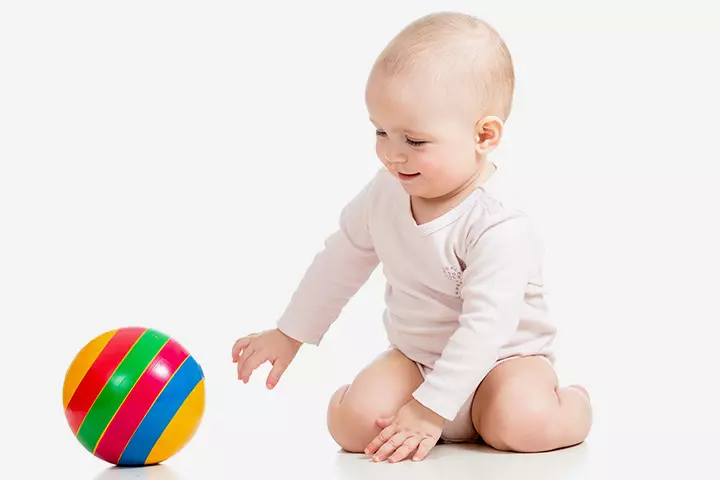
You will need:
- You, your partner, and the baby
How to:
Sit equidistant from one another and roll a small ball towards the baby. Once they catch it, ask them to roll it to your partner, who passes the ball back to you. Repeat the cycle and prompt the baby if they are confused.
Skill developed: Hand-eye coordination, object tracking skills
2. Walk the maze
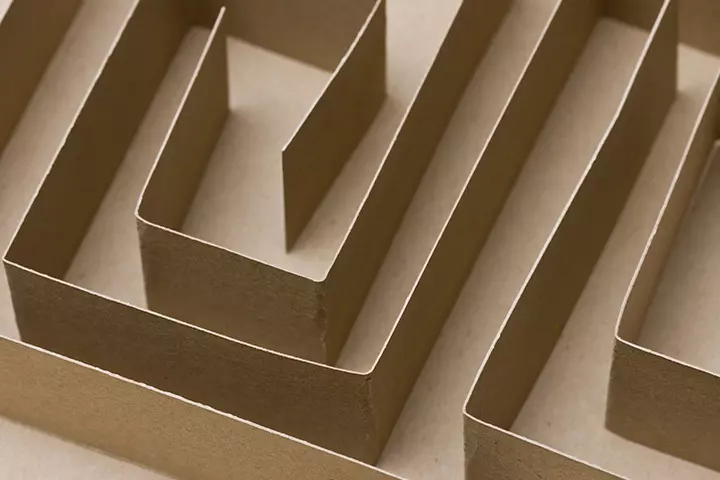
You will need:
Carton boxes as tall as the baby
How to:
Infants learn to walk a few steps without support at the age of 12 months (1). Here is a game to nurture their walking skills at 16 months. Unfold the carton boxes and flatten them out. Place them on the floor like a maze, with an entry and exit point. Guide the baby through the maze by giving them cues and encourage and appreciate them once they walk out of the box. This game makes a fantastic indoor activity for a 16-month-old and can stimulate them to think.
Skills developed: Motor, vision-movement coordination, basic problem-solving, and decision-making skills
3. Catch the floating balls
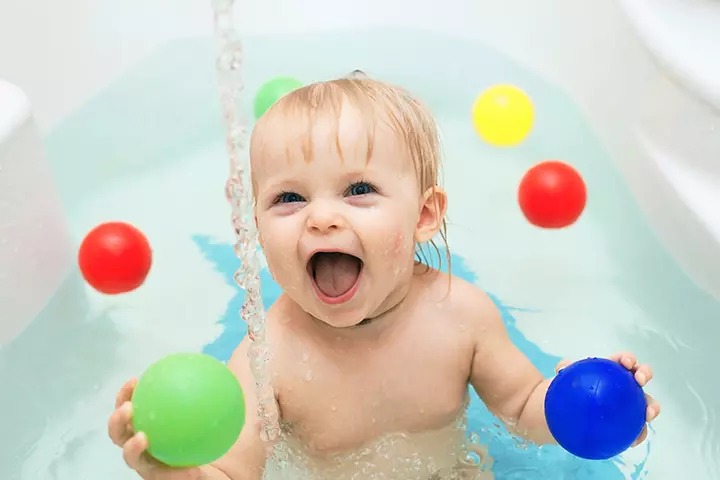
You will need:
- Small colorful plastic ballsBasket-like bucket
How to:
Put a few colorful plastic balls into the baby’s bathing tub. Give the baby a mug, and ask them to fish out all the floating balls with it. If they seem confused, show them how to do it. Alternatively, you could fill a bucket with plastic balls and push it to the bottom of the tub, and when the baby is ready for the activity, pull out the bucket. All the balls will rush to the surface, making the baby squeal with delight.
Skills developed: Hand-object movement coordination, fine motor skillsiThe ability to make movements using the small muscles of the hands and wrists.
4. Bubble catching
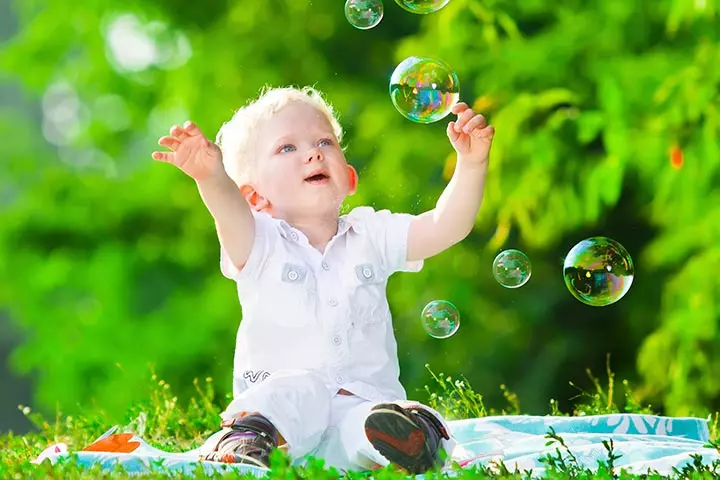
You will need:
- Soapy water bubble maker
How to:
Make some soapy water at home or get a ready-made one. Using a loop or bubble-making gun, blow out one bubble at a time while your partner prompts the baby to look at the bubbles. Blow out a few more bubbles in the air and let the baby track them. This exercises their vision to its full potential.
Skills developed: Object tracking, overall skills of vision
 Did you know?
Did you know?5. Sorting the clothes
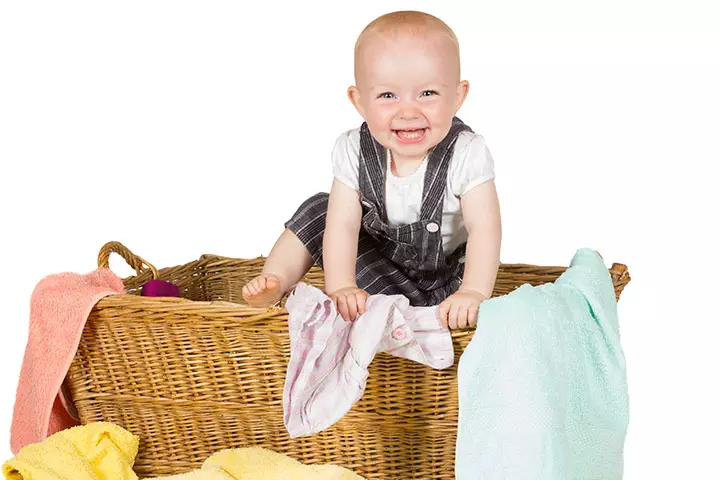
You will need:
- Baby clothes
- Three to four laundry baskets
How to:
Place the baby’s clothes on the bed and make the baby sit with the laundry baskets. Assign each basket to a type of cloth—jackets, socks, pants, etc.—and put the first cloth in the basket yourself. Then hand a cloth to the baby by calling aloud its name (“This is a sock”). Hold the baby’s hand and put the cloth in the correct basket. If the baby seems confused, make them identify the right basket to place the cloth. Repeat this until the baby gets a hang of it. It is an excellent learning activity for a 16-month-old baby.
Skills developed: Object-noun associationiThe ability of a child to connect objects with related words. , memory and cognitive skills
6. The ice slips

You will need:
- Ice cubesChopping board
- Bowl
How to:
Place the chopping board at an inclined angle and put an ice cube atop the board. Slowly let go of the ice cube and watch as the baby watches the ice cube in fascination. Now, prompt the baby to do the same. You could freeze a few fruit puree cubes to make the activity colorful.
Skills developed: Tracking moving objects, vision-muscle coordination
7. One, two, three
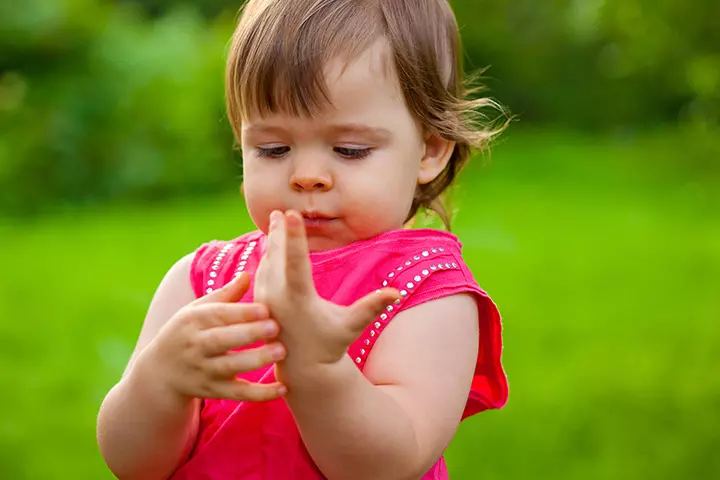
You will need:
- You and your baby
How to:
This is a good time to introduce your baby to numbers. Make them sit in front of you and start counting. Every time you say a number, indicate it with your fingers. So when you say “one”, show them one finger, when you say “two,” show them two, and so on. Ask your baby to repeat the numbers to help them remember the sound. Gestures play a significant role in helping a 16-month-old learn new words, and thus, finger counting is a good way to teach numbers (2).
Skills developed: Memory skills, basic number-quantity associationiThe ability to connect a numeral to the associated number of objects.
8. Bubble wrap smash
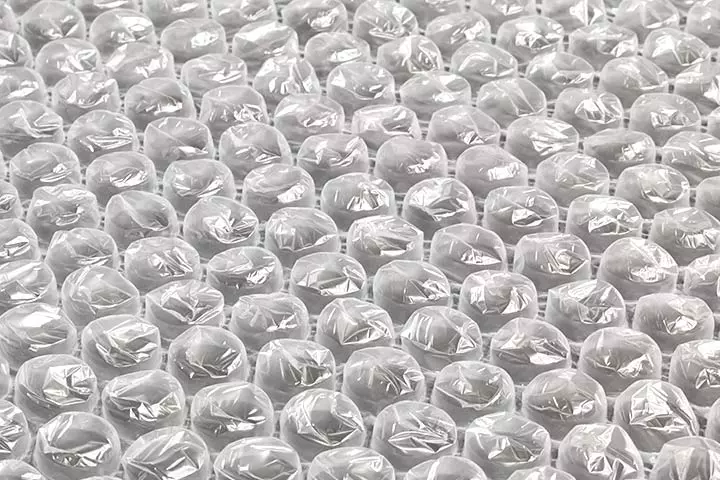
You will need:
- Bubble wrap sheet
How to:
People enjoy bursting bubble wrap sheets. And it makes a fantastic prop for a 16-month-old’s activity. Place a few bubble wrap sheets on a hard surface and step on the sheet and burst some bubbles as the little one watches. Then prompt your baby to do the same and have some fun!
Skills developed: Cause and effect, Tactile sensation developmentiThe ability to use the sense of touch to understand and learn about objects.
9. Paper folding
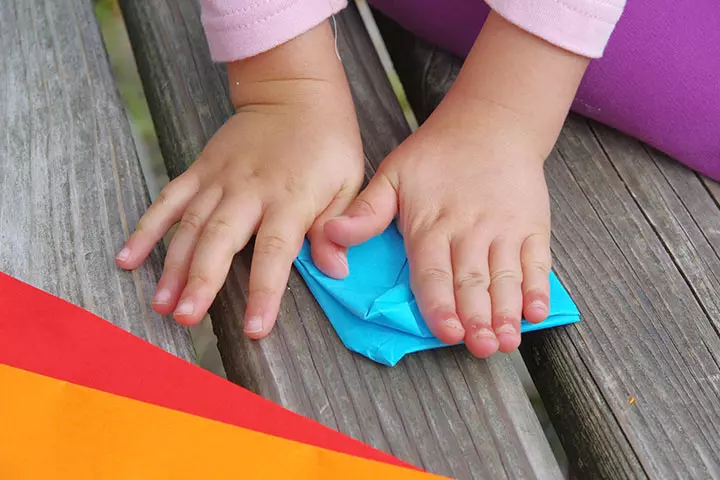
You will need:
- Small sheets of colored paper
How to:
Take a colored paper and give another to your baby. Fold the paper and ask your baby to follow you. Keep the folding simple so that they can replicate it easily. Your partner can help the baby by holding their hand and showing them the correct way of folding the paper. This activity can make your 16-month-old adept at using their fingers.
Skills developed: Fine motor skills, basic instruction obedience
10. Cereal container
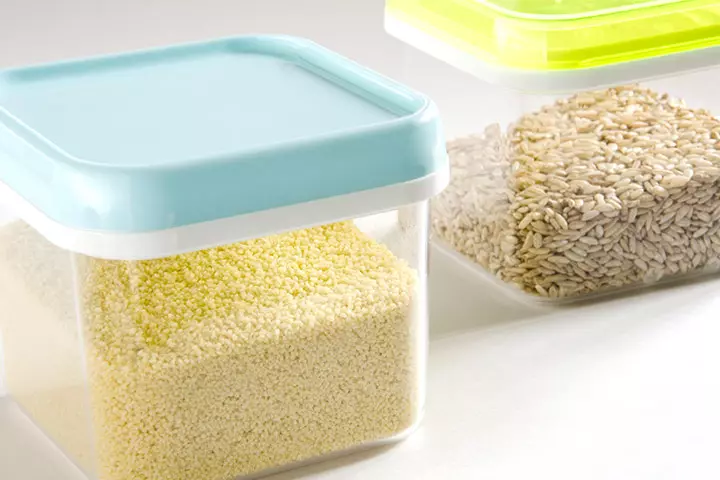
You will need:
- An empty bowl
- Cereal bowl
How to:
Place the cereal bowl in front of the baby and put a handful of cereal into the empty bowl. Do it a couple of times while the baby observes and then tell the baby to do the same. Guide the baby if they spill the cereal outside the bowl. After a few rounds, you can empty the bowl and repeat the process.
Skills developed: Hand agility, fine motor skills
11. Find me if you can
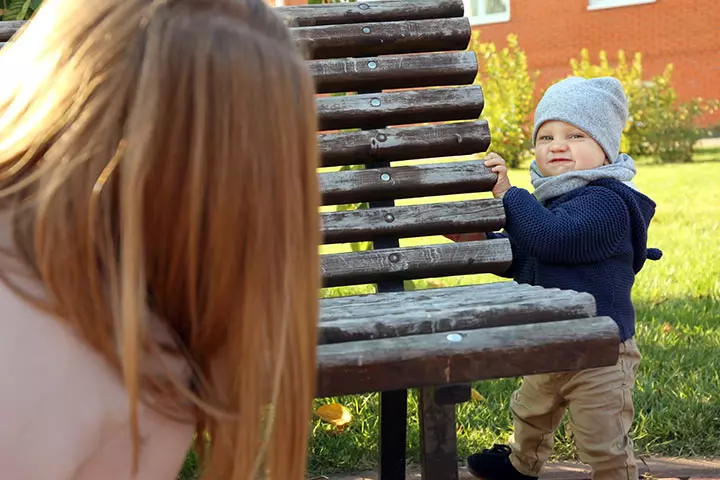
You will need:
- You, your baby and your partner
How to:
This is a version of hide and seek but the hiding spots keep changing. Your partner hides in some place and calls out for the baby. Before you and your baby get there, he sneaks out to another hiding spot. Your curious baby would be confused to hear his dad call them from so many places.
Skills developed: Sound-location coordinationiThe ability to connect a sound to its source location. , hearing skills
12. Touch your nose

You will need:
- Your partner and the baby
How to:
Your partner sits with the baby opposite you. State the instruction “Touch your nose”, and put your finger on the nose while your partner does the same. If the baby does not copy the action, your partner can gently hold the baby’s finger and place it on the nose. Repeat the activity by naming different body parts. Give the instructions without touching the part yourself just to see if the baby remembers it. Once the baby is adept at playing the game, you can play the game with questions like “Where is the nose?”, to observe if the baby can associate a part of the body with its name.
Skills developed: Object-noun-place coordination and understanding
13. Drawing time
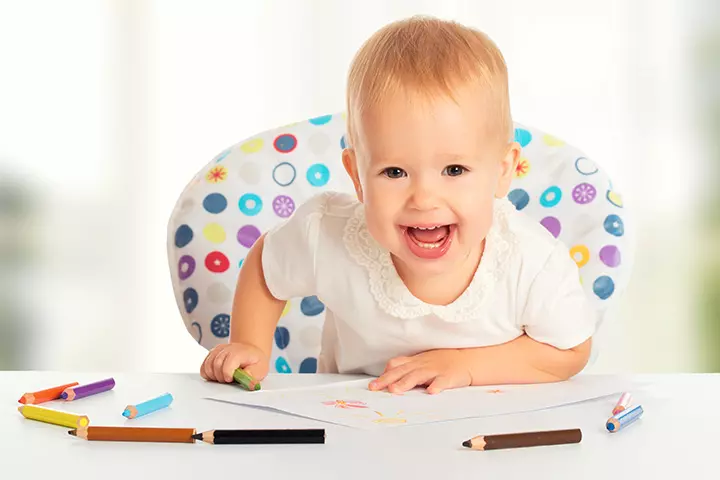
You will need:
- Non-toxic, baby-friendly crayons
How to:
Babies love scribbling at the age of 16 months (4), and drawing is a great way to channelize the baby’s creativity. Buy a set of crayons that are specially made for older infants and toddlers. Draw a simple shape on the paper and ask your baby to copy it. Their drawing could be shabby, but appreciate them for their efforts.
Skills developed: Introduction to art, basic pencil gripping skills, hand-eye coordination
14. Stack the cups
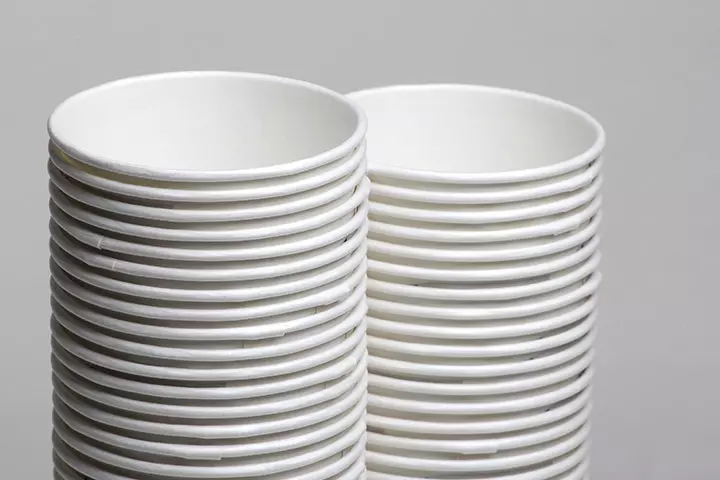
You will need:
- Paper cups
How to:
Give your baby a couple of cups and show them how to stack them. Once the baby gets the hang of it, hand them one cup after the other, and let them pile them up. Once stacked, let the baby remove each cup at a time and hand it over to you.
Skills developed: Nimbleness with fingers, fine motor skills
15. Music time
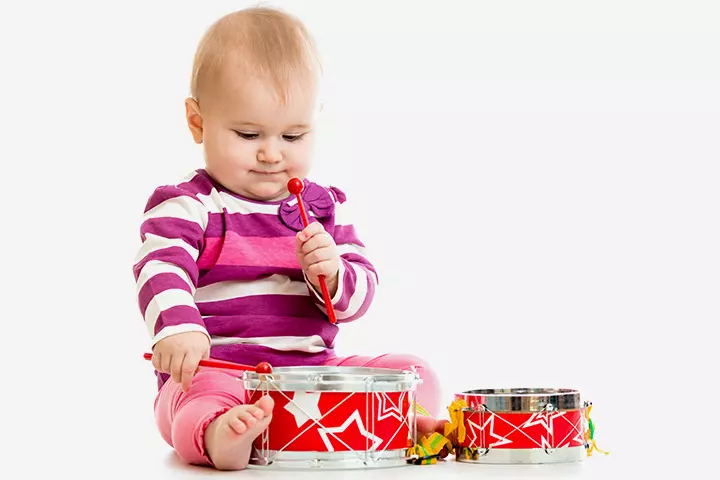
You will need:
- Smalls drums meant for babies
How to:
Melissa, a teacher and mother, shares how playing musical instruments helped her son learn about sounds and concepts. She says, “Noise makers are such a hit with little ones. Musical instruments can be played with/explored completely independently, or with someone else. When Kade (son) and I played with these together, I would demonstrate different ways to use the instruments, talk about loud/quiet, fast/slow and describe the different sounds we could make. This is a great activity for when you have music playing too which is great for development (ii).”
16. Bean bag toss
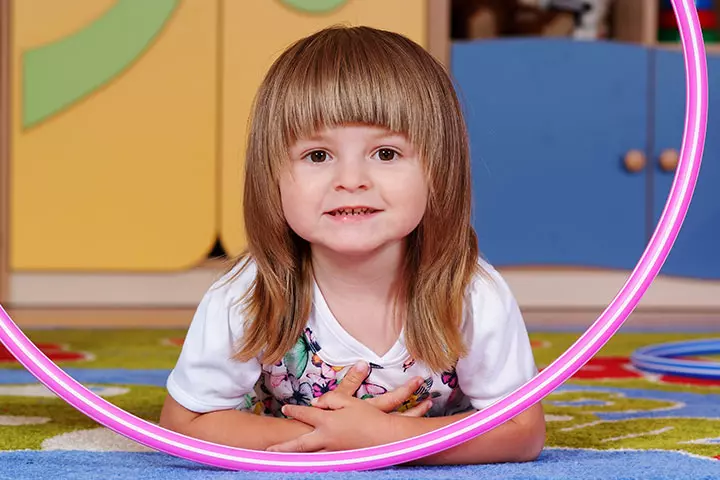
You will need:
- Soft bean bags or fabric pouches
- Hula hoops
- A safe play area
How to:
Set the hula hoops on the ground at a fair distance from your child, and show them how to pick up a bean bag and toss it gently toward one of the targets. Encourage them to watch as it lands in or near the target. When your child successfully tosses a bean bag into a target, celebrate their achievement by encouraging words, clapping, or smiling to show them they did a great job.
Skills developed: Hand-eye coordination, sensory exploration
These activities can be real fun for babies, but there could be a few things you must watch out for.
5 Tips For Parents Of 16-Month-Old
The following are some ways to have more fun with your 16-month-old.
- Be patient when introducing an activity: A baby may not immediately grasp the game or may learn only a bit of it. In any case, be patient since babies take some time to understand and imitate a new concept.
- Skip an activity if a baby dislikes it: Does he become irritable every time you play a particular game? This could mean that he does not have a good taste for the activity. Try another one and never force the baby.
- Have an activity schedule: Play a different game every day and give breaks between activities. That will ensure the baby does not get bored but develops an interest in each activity.
- Be interactive: Talk to your baby, give him instructions, and appreciate it when he gets anything right. You can also engage your child by narrating stories related to the activities and asking open-ended questions. It is essential for the parents to communicate with the baby.
- Baby proof the house: Baby proof your home to mitigate the risk of accidental injury. Keep away sharp objects and electrical appliances
Benefits Of Play For 16-Month-Olds
Engaging in play is crucial for the development of a 16-month-old. Here are some benefits of play for your 16-month-old (1) (2) (3) (4) (5) (6).
- Encourages exploration: Play allows toddlers to explore their environment, which encourages problem-solving and learning.
- Language skills: Interactive play, especially with caregivers, enhances children’s language acquisition and communication abilities.
- Motor skills: Physical activities during play support the development of both fine and gross motor skills and aid with muscle strength and coordination.
- Social-emotional growth: Through play, children learn to express their emotions, develop empathy, and build social skills by interacting with others.
- Sensory exploration: Activities that involve different textures, sounds, and sights help children make sense of the world around them and enhance their sensory processing and cognitive skills.
Frequently Asked Questions
1. What are some fun outdoor activities for a 16-month-old baby?
16-month-old babies may have supervised outdoor activities such as playing with a ball, exploring nature, outdoor storytelling, and playing with bubbles.
2. How much structured playtime should a 16-month-old baby have each day?
Toddlers are recommended to get at least 30 minutes of structured physical activity and 60 minutes of active free play every day. They should not be inactive for more than an hour except for when they are sleeping (1).
3. What are some quiet time activities for a 16-month-old baby?
Sticking stickers, playing with kid-friendly play-dough, painting with hands, and building blocks are some quiet time activities for a 16-month-old baby.
Activities for 16-month old babies should aim to develop their gross and fine motor skills. You may teach them to hold crayons, pencils, or other objects in the right way. Walking the maze, catching the floating balls, bubble catching, smashing the bubble wrap, etc., are interesting activities for 16-month-olds. You may also teach them basic numbers from this age or engage them in cognitive activities for toddlers. Introducing some musical toys or making them listen while you sing can also be ideal. However, never force a baby to do something they dislike. You may also introduce different activities to avoid boredom.
Infographic: Games And Activities For 16-Month-Old Baby
After babies turn one, they constantly run around, explore, and learn new things. So channel their energy into something fun that will keep them busy, support their motor and cognitive development, and enhance their senses. This infographic lists exciting activities to help you get started.
Some thing wrong with infographic shortcode. please verify shortcode syntax
Illustration: Learning Games And Activities For 16-Month-Old Baby
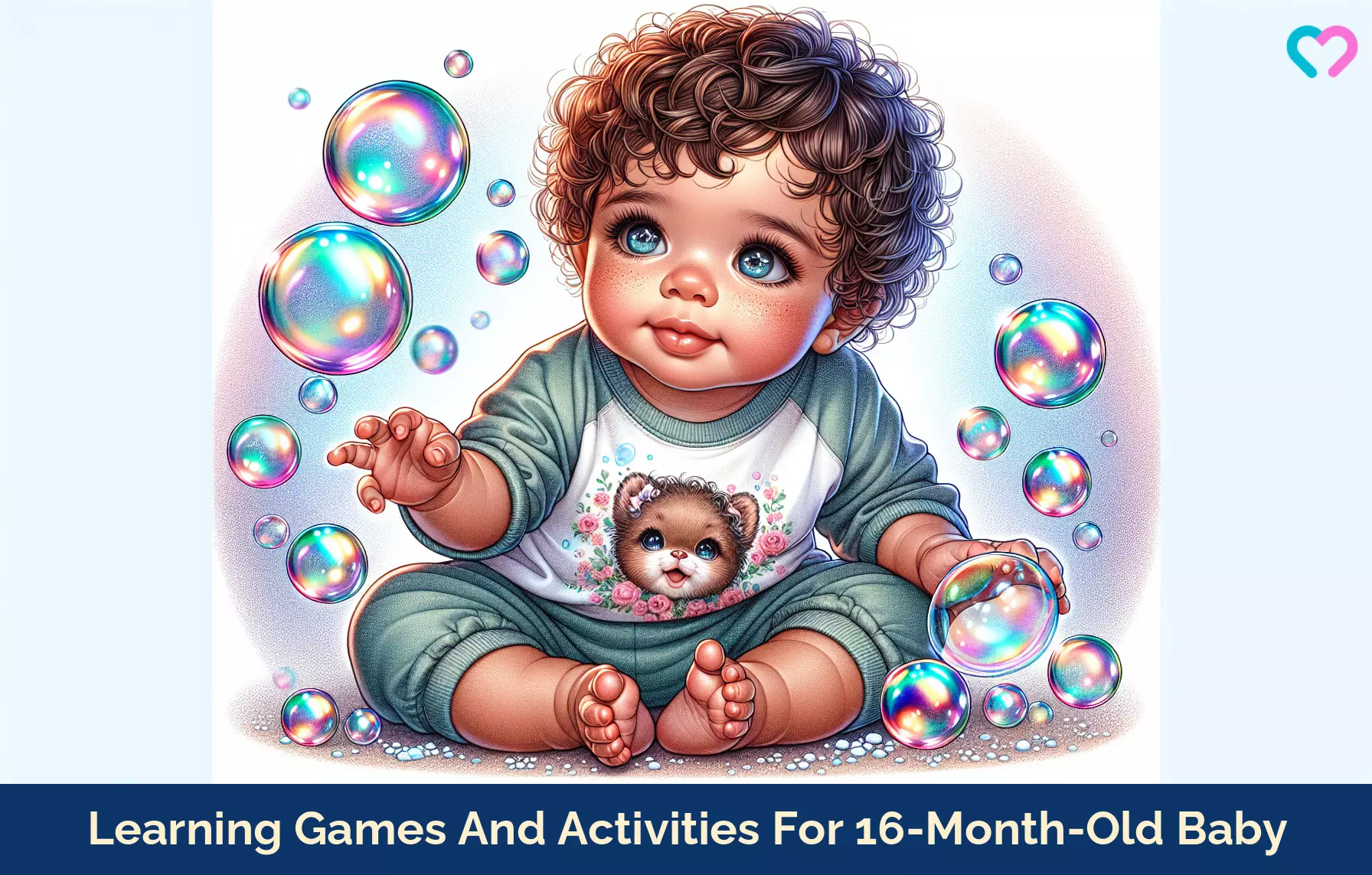
Image: Dall·E/MomJunction Design Team
This video features fun and interactive activities for children aged 12 to 18 months. Explore fine motor and sensory skills that will keep your tiny bundle of joy occupied.
Personal Experience: Sources
MomJunction articles include first-hand experiences to provide you with better insights through real-life narratives. Here are the sources of personal accounts referenced in this article.
i. On our shelves at 16 months.
https://ourmontessorijourney.wordpress.com/2014/06/06/on-our-shelves-at-16-months/
ii. Activity Ideas for 12-18 Month-Olds
https://ohheyletsplay.com/home/activity-ideas-for-12-18-month-olds
References
- Fitness and Your 2- to 3-Year-Old.
https://kidshealth.org/en/parents/fitness-2-3.html - 16 Gestures by 16 Months
https://www.interveningearly.org/downloads/16×16-handout.pdf - Thinking and play: toddlers
https://raisingchildren.net.au/toddlers/play-learning/play-toddler-development/thinking-play-toddlers - 16 Month Old Milestone
https://www.newhealthguide.org/16-Month-Old-Milestones.html#google_vignette - The Benefits of Playing with your Child
https://www.hopkinsmedicine.org/health/wellness-and-prevention/the-benefits-of-playing-with-your-child?utm_source=chatgpt.com - Importance of Play in Early Childhood
https://headstart.gov/curriculum/article/importance-play-early-childhood
Community Experiences
Join the conversation and become a part of our nurturing community! Share your stories, experiences, and insights to connect with fellow parents.
Read full bio of Dr. Elna Gibson
Read full bio of Rohit Garoo
Read full bio of Dr. Ritika Shah
Read full bio of Trisha Chakraborty







